The 50 Best Science Writers of All Time
Being a great science writer means not only being able to convey frequently complex ideas and theories: it also involves being able to write in a way that keeps readers, even those who aren’t experts in the field, engaged and wanting to learn more about the subject. It’s a delicate balance to attain, but there have been many throughout the years who’ve managed to do it, though some with more grace than others. We’ve compiled a list of some of these science writing greats that any student should check out.
Astronomy, Cosmology and Astrophysics
Through the work of these authors, readers can explore the farthest reaches of our universe, gain a better understanding of our own solar system and grasp the rules which govern it all.
1. Carl Sagan: Perhaps best known for his Cosmos television series, Sagan was a prolific writer as well, publishing over 600 scientific papers and writing or editing over 20 different books. Sagan’s work helped to showcase the wonders of the universe to millions of people around the world and his enthusiasm and intelligence make him an enduring figure in the field of astronomy today.
2. Stephen Hawking: His book A Brief History of Time was a landmark in popular science texts, showcasing theories of cosmology in a way that even the everyday person could understand– and staying on the best seller list for almost a year. His genius, writings and persona have made him an academic celebrity, but one acclaimed with just cause.
3. Philip Plait: Plait’s books Bad Astronomy and Death from the Skies are popular and widely-read texts, but he is also noted for his role in blogging as well, producing the award-winning site Bad Astronomy though Discover magazine’s main site.
4. George Gamow: Russian theoretical physicist George Gamow spent a great deal of his career studying the Big Bang, the decay of atoms and star formation. He shared his passion for science through his writings and was highly successful, winning a Kalinga Prize for helping to popularize science. His text One, Two, Three…Infinity remains popular to this day, touching on mathematics, biology, physics and crystallography.
5. Brian Greene: Physicist Brian Greene is best known for his popular science book The Elegant Universe in which he lays out the field of string theory in an accessible manner. His other popular books, Icarus at the Edge of Time, The Fabric of the Cosmos and The Hidden Reality are also well worth a read for those interested in studying physics.
6. Roger Penrose: Mathematical physicist Penrose has no trouble shaking up the physics word with his ideas. He has won numerous awards for his research and continues to push forward new ideas like those in his latest work, Cycles of Time: An Extraordinary New View of the Universe.
Physics and Mathematics
Check out these authors to teach yourself about the rules of matter, motion and the particles that make up the universe as we know it.
7. Richard Feynman: Nobel Prize-winning Physicist Richard Feynman was one of the best-known scientists in the world during his time, and is still widely known today for his work in quantum mechanics, particle physics and superfluidity. Besides being a whiz in the lab, Feynman helped to popularize the subject through his books and lectures, most notably in The Feynman Lectures on Physics.
8. Michio Kaku: Few have brought physics into popular culture like Michio Kaku. His books Physics of the Future and Parallel Worlds , among others, have helped to make him a well-known figure and cemented his role in the history of scientific writing.
9. Steven Weinberg: This Nobel Laureate in physics has written a number of books that address everything from the fundamentals of cosmology to the discovery of subatomic particles. His research has helped the field make great strides, and his work is well worth a read.
10. Albert Einstein: Famous the world over and possessing a name that’s synonymous with genius, this physicist’s theories helped to change the way scientists thought about time, space and bodies in motion. His publications on relativity are well worth a read for anyone, as he uses powerful examples to explain some of the more difficult concepts.
11. Erwin Schrodinger: Best known for his work in physics, which won him a Nobel Prize, Schrodinger’s work covers topics from that field to the biological sciences. His most popular works include What Is Life? and The Interpretation of Quantum Mechanics.
12. Ian Stewart: A great promoter of mathematics, Ian Stewart has won awards for his books that bring math and science to a popular audience. Sci-fi fans will love his Science of Discworld series and math geeks will appreciate his texts like Nature’s Numbers.
13. Steven Strogatz: This mathematician’s work has been applied to diverse fields like sociology, business and epidemioloy His writings help make even the most complex topics accessible, interesting and even emotionally compelling.
14. Douglas R. Hoftstader: In 1980, Hoftstader’s book Godel, Escher, Bach: an Eternal Golden Braid won him the Pulitzer Prize for non-fiction. The son of a Nobel Prize-winning physicist, Hoftstader grew up surrounded by science and has produced a number of groundbreaking and compelling books on the subject.
Biological Sciences
These authors will help students and science enthusiasts alike to learn more about how biological organisms form, grow and change over time.
15. Edward O. Wilson: American biologist Edward Osborne Wilson, perhaps better known as E.O. Wilson, won the Pulitzer Prize in 1991 for his book On Human Nature, in which he argues that the human mind is shaped more by social and environmental factors than genetics. Wilson didn’t just study the social lives of humans, however, and readers will find some great writings of his on ants and other social insects as well.
16. Sir D’Arcy Wentworth Thompson: This pioneer in the field of mathematical biology is best known for his 1917 book On Growth and Form, an account of how both living and non-living matter grows. It was called by Peter Medawan, “the finest work of literature in all the annals of science that have been recorded in the English tongue.”
17. David Quammen: With work in publications such as National Geographic, Harper’s and The New York Times, Quammen is certainly a high-profile science and nature writer. Be sure to check out his books Monster of God: The Man-Eating Predator in the Jungles of History and the Mind and The Reluctant Mr. Darwin: An Intimate Portrait of Charles Darwin and the Making of His Theory of Evolution.
18. Paul de Kruif: While it might be outdated today, de Kruif’s work Microbe Hunters was a watershed publication back in 1926. Any student interested in better understanding the field of microbiology should add it to their reading list.
19. Jonathan Weiner: This popular science writer has won everything from the Pulitzer Prize to the National Book Critics Circle Award to the Los Angeles Times Book Prize for his writing. Touching on topics like disease, evolution and aging, Weiner delves into biology in an incredibly moving way.
Evolution and Genetics
Here, you’ll find some of the biggest and best minds in evolutionary science and genetics who shared their thoughts and research with a wider audience.
20. Stephen Jay Gould: If you have any interest in evolutionary science at all, you’ve more than likely heard this man’s name. A paleontologist and professor at Harvard, Gould was also a gifted writer, crafting books and essays on evolution and natural history that remain popular today.
21. Richard Dawkins: While controversial for his unabashed attack on religion, Dawkins’ writings on evolution and genetics are a must-read for any student hoping to pursue a career in these fields of science. His books The Selfish Gene and The Extended Phenotype made big waves in the scientific community when they were released almost 30 years ago – and are still influencing thought in evolutionary biology today.
22. Matt Ridley: Ridley is the author of several works in popular science, including Genome: The Autobiography of a Species in 23 Chapters and The Rational Optimist: How Prosperity Evolves, and takes a look at everything from our genetic code to how we reproduce.
23. James D. Watson: Few discoveries have changed our world as much as the unraveling of the mysteries of our own DNA achieved at long last by scientist James D. Watson in conjunction with his partner Francis Crick. His most famous book, The Double Helix , showcases the race to discover the properties of DNA and is as close to a soap opera as readers are bound to find in scientific writing.
24. Lewis Thomas: A physician and etymologist, Thomas’ writings garnered him numerous awards throughout his career. His book The Lives of a Cell is a brilliantly written collection of essays on the interconnectedness of life on Earth.
25. Roger Lewin: Anthropologist and scientist Roger Lewin has worked with some of the best, teaming up with Richard Leakey in the 1980’s to put out three books. He has worked as a freelance writer for over three decades, producing works that are both informative and accessible.
26. Richard Lewontin: A pioneer in the fields of molecular biology, evolutionary theory and population genetics, students working towards a degree in biology would be remiss not to read the books written by this influential scientist.
27. Carl Zimmer: A prolific writer of articles and books on science, Zimmer is one of the most popular science writers out there today. He touches on a number of topics in his books, though all biology related, from the nature of viruses to evolutionary theory.
Zoology and Naturalism
Those who love to read about the natural world will appreciate these great science writers who focused their careers on promoting the understanding and preservation of it.
28. David Attenborough: If you don’t know this British broadcaster and naturalist’s name, you’ll surely know his voice, as he has narrated hundreds of nature programs over the course of his career. He is also a gifted writer, having penned numerous books and TV programs about birds, mammals and our planet.
29. Frans De Waal: De Waal is famous for his studies of great apes, namely our closest genetic relative the bonobo ,though he has also studied the chimpanzee extensively. If you’d like to learn more about primate social life or bonobos, check out his books Bonobo: The Forgotten Ape or Primates and Philosophies: How Morality Evolved.
30. Jane Goodall: Perhaps the world’s best known primatologist, Goodall’s devotion to helping humans better understand and preserve chimpanzees has made a big impact around the world. Throughout her career she has written numerous books, for both adults and children, sharing insights into chimpanzee communities and encouraging a more compassionate world.
31. Dian Fossey: Dian Fossey’s dedication to preserving African mountain gorillas eventually cost her life, but she didn’t go without publishing a great book, Gorillas in the Mist that helps shed light on the behavior, culture and value to the natural world these great apes provide.
32. Konrad Lorenz: Nobel Prize-winning zoologist Konrad Lorenz made great strides in his research and the foundation of the field of ethology. He was also a great author who wrote numerous books detailing his zoological studies in a way anyone could appreciate.
33. Rachel Carson: Carson’s book Silent Spring was perhaps one of the most important science books of the 20th century, changing the way we view our interactions with the environment and the harm even simple chemicals can have on complex ecosystems. Carson continued to write throughout her life, leaving behind a wealth of scientific essays and publications that are well worth a read for any student of the sciences.
Human Body
Through the great works of these science writers, you’ll explore the mysteries of the human body and mind.
34. Peter Medawar: British biologist Peter Medawar had an illustrious career, winning a Nobel Prize in 1960 and helping make world-changing discoveries in medicine. He is also regarded as one of the most brilliant science writers of all time. Known for his wit and ability to write for both professionals and the general public, Medawar’s books should have a place in any library of scientific classics.
35. Steven Pinker: Cognitive scientist Steven Pinker has helped to redefine how we understand the human mind, from its evolution to language usage. His popular books, including Words and Rules and How the Mind Works, are great additions to any comprehensive science library.
36. Oliver Sacks: Physician and best-selling author Oliver Sacks is one of the most popular science writers out there today– and for good reason. His books help explain many neurological issues in a creative and engaging way that even non-medical professionals find captivating.
37. Alfred C. Kinsey: Kinsey’s most famous writing, published in the two books called collectively the Kinsey Report, helped document what goes on behind closed doors with human sexual behavior. Considered racy at the time, and probably still so by many today, the books are a must-read for anyone entering a career in biology, psychology or reproductive sciences.
Multi-Topic
These gifted writers focus on different topics throughout their writing, touching on fields like evolution, technology and paleontology.
38. Simon Singh: Author, journalist and TV producer Simon Singh focuses on bringing science and mathematics to the masses through his work. His popular science books present often complex subjects in a highly accessible manner, introducing many a layman to the fundamentals of Fermat’s Theorem, cryptography and even the science (or lack thereof) behind alternative medicine.
39. Bill Bryson: Selling over six million books in England alone, Bryson is a writer who has helped to bring a wide range of scientific subjects alive for the general public. Often funny and always witty, his book A Short History of Nearly Everything won him multiple prizes for science writing.
40. James Lovelock: Lovelock’s best known work Gaia garnered him some criticism in the scientific community for being too mystical. Yet, it poses an idea, that our planet is a single, self-regulating system, that is hard to ignore in an age where pollution and disease on one side of the world can quickly impact the other.
41. Jared Diamond: Jared Diamond’s Guns, Germs and Steelwas a bestseller, detailing what factors came into play to let some societies dominate while others grew very little. His works draw on a variety of fields from geography to biology, making them interesting reads for those in any field of science.
42. Roy Chapman Andrews: An explorer, adventurer and naturalist and a real-life Indiana Jones, Andrews led an amazingly interesting life. In the early 20th century he made some major paleontological finds in the Gobi desert, discovering the first fossilized dinosaur eggs. He details many of his adventures and his discoveries in his books, including Quest in the Desert and This Business of Exploring.
43. James Gleick: Gleick’s works have garnered him nominations for Pulitzer and Nation Book Award prizes and have been read around the world. Much of his writing addresses the ways science and technology influence our culture, though he has written some great biographies and monographies on other topics as well.
44. Timothy Ferris: Not to be confused with Timothy Ferriss, science writer Tim Ferris has written a number of best-selling popular books on physics and cosmology. His best works to date are The Science of Liberty and Coming of Age in the Milky Way.
Oldies but Goodies
If you want to take in some classic science writers, these are all excellent choices, showing you where great science writing has its roots.
45. Charles Darwin: If you can move past his sometimes dry Victorian prose, the content of Darwin’s greatest books, The Voyage of the Beagle and The Origin of Species is nothing less than game-changing. While it would be simple to read about the ideas they contain in a textbook, reading through Darwin’s own witty, beautifully told tales can be much more enlightening.
46. Isaac Newton: Few would argue that Newton was one of the greatest thinkers to ever live and his works like Principia Mathematica helped change the very way we and the scientific community think about our world. While some of his text may be a bit dry to modern readers, it is accessible and offers insight into the fundamentals that are center to much of our modern understanding of science.
47. Galileo Galilei: In times past, scientific inquiry in so much that it disagreed with the church’s teachings was…discouraged, to say the least. Galileo’s writings stood up to this and his witty Dialogue Concerning the Two Chief World Systems landed him in the hot seat during the Inquisition– a beautiful testament to those who fought for truth over doctrine.
48. Nicolaus Copernicus: Copernicus wrote throughout his life, but he waited until he was on his deathbed to release his best and most important work– On the Revolutions of Heavenly Spheres. It is by no means an easy read, but for those who love mathematics, it can be an amazing journey into how a man could have made such huge discoveries with such limited equipment.
49. Aristotle: Most know Aristotle for his writings on philosophy, but he dabbled in the sciences as well writing on physics, biology and zoology. His views were to carry well into the Medieval and Renaissance eras thought today we known many (but not all) of them to be false. No history of scientific thought is complete without a reading of Aristotle’s works.
50. Primo Levi: A brilliant chemist, Levi came close to losing his life after spending a year in Auschwitz during WWII. His book The Periodic Table was named the best science book every by the Royal Institution of Great Britain.
*Today’s article courtesy of http://www.onlinecollege.org/
* * *
*I’ve been traveling for the past few days. Back to our regular blog posts tomorrow.
Big WPA news coming this week!
http://www.writerspoliceacademy.com/
How would you like to receive a mystery gift?
Well, I’d tell you how, but it would spoil the surprise. So head over to Alafair Burke’s site to see how you could be a lucky winner. Here’s a hint…
Did I mention that Alafair Burke is a member of the 2011 WPA faculty? And I’ll bet she’d be happy to sign her books between shooting bad guys and driving police cars.
Have you registered?
The early bird rate deadline has been extended thanks to a request by Sisters in Crime. Yep, they’ve got something up their sleeves…

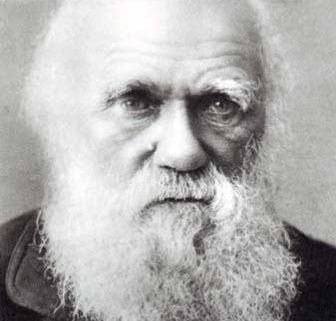
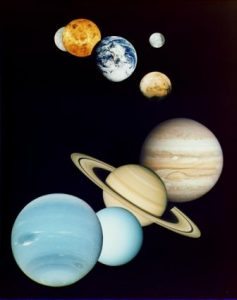
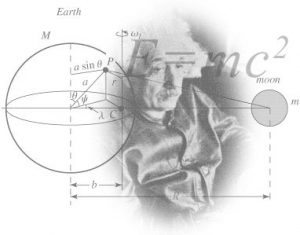

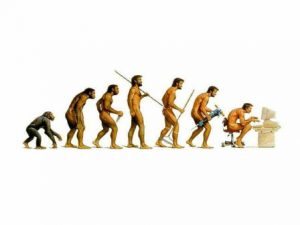



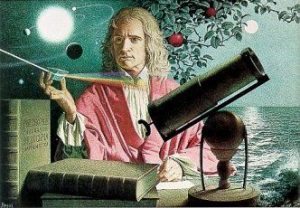

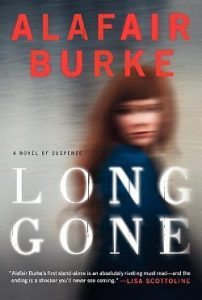



I only counted two women. I guess that’s why some educators are trying to encourage more girls to study math and sciences in school.
Also DAVA SOBEL: ‘Longitude’ and ‘Galileo’s Daughter’. Saw her do a wonderful presentation on doing research in Italy and being able to read the letters that Suor Celeste wrote to her Dad Galileo. While War and the Plague raged through Europe and the Pope threw Galileo in jail for heresy, Sr. Celeste writes to her father about family matters: “I implore you not to confuse yourself with drink, as I hear you have been doing.” She died before his trial was over, and Galileo carefully kept her letters until his own death. The book is a great way to give readers a personal connection to big science.
We stand on the shoulders of giants in terms of modern education, when you consider that PBS had Carl Sagan, Stephen Hawking and David Attenborough doing some excellent science-based TV shows. This is a good post, I enjoyed reading it.
You forgot author Jon Franklin, two-time Pulitzer Prize winning author. Franklin’s _Molecules of the Mind_ (Dell 1988) predicted Prozac and other “molecular psychology” advances we now take for granted. He’s written about the first trauma unit in the U.S. (_Shocktrauma_), brain surgery (_Not Quite a Miracle_) and scientists’ breakthrough experiments — on themselves (_Guinea Pig Doctors_). His most recent book, _The Wolf in the Parlor_, delves into the evolution of the human symbiosis with dogs. All of these books are written for laymen and excellent resources for anyone trying to understand the science behind what defines us as human.
I was thinking the same thing. Not only did I find Asimov listed as a source in my textbooks for HS science, I found references to him in my HS research on Ancient Greece!
He also wrote _Please Explain_, in which he explained things like the theory of relativity in plain language.
I would also have included Isaac Asimov.